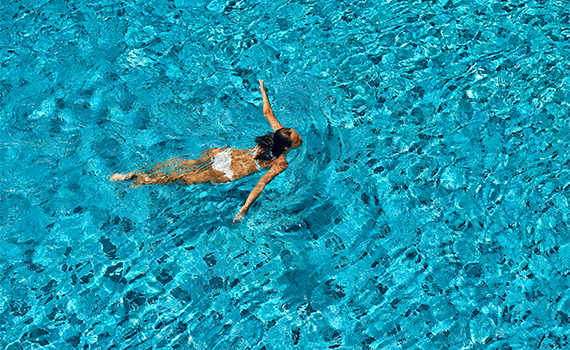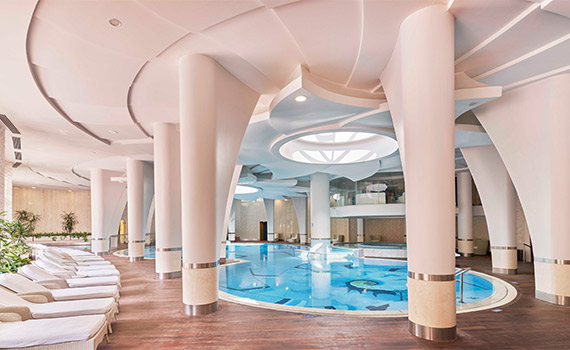Swimming, which is a pleasant activity, is generally preferred in hot seasons such as spring and summer, but it is also good for the body in winter. Swimming, which is also seen as a water sport that works all the muscles in the body, is recommended for the prevention of many orthopedic problems.
Spending time in the water offers a psychologically relaxing experience as well as physical effects. It allows your body to relax. In addition, swimming, which allows you to get rid of stress, is a frequently preferred activity in winter as well as in summer.
The benefits of swimming in the winter include spending time in a peaceful atmosphere. It is almost impossible to swim in the sea and swimming pools, which become the center of attention for everyone in the hot seasons. In winter, swimming in sterilized outdoor and indoor pools provides a peaceful and relaxing experience.
There are many different benefits of swimming in the winter season. These benefits not only affect the physical but also cognitively and psychologically, such as stress reduction and focus.
What is the Use of Swimming in the Pool in the Winter Season?
![]()
In winter, the sea temperature is usually low. In addition, wind and waves can make swimming in the sea impossible in winter. Indoor and outdoor swimming pools, which create an ideal environment for winter swimming, are equipped with specialized heating systems to maintain the necessary warmth. You can have a pleasant time in the pools and stagnant water, which are cleaned regularly every day.
Swimming in the pool in winter has many physical and psychological benefits. Swimming increases blood circulation, accelerates the body's production of antibodies, and strengthens the immune system. With a strong immune system, you can have a resistant structure in the winter season when diseases are intense.
Poor blood circulation can cause some diseases, especially in people who do sports. The weak blood circulation, which prevents the growth of the muscles and increases the feeling of tension, begins to increase when you spend time in the water. With the increase in blood circulation, the tension in the muscles decreases, the body relaxes and the development of the muscles accelerates.
Swimming in water helps speed up the heartbeat. Thanks to the accelerated heartbeat, the blood flow in the body accelerates and the oxygen rate increases. The acceleration of the heartbeat and blood flow also activates the metabolism. Working to increase the body's temperature facilitates fat burning.
Swimming, which improves brain activities as well as muscles, helps cognitive development. Swimming activity, which allows both sides of the brain to work, improves learning function.
Allowing the whole body to work, swimming succeeds in exercising every muscle in the body. For this reason, it is often preferred for cardio and muscle development. Swimming, which turns the process of doing sports into an enjoyable one, helps to protect heart health. It also allows you to lead a healthy life.
Endorphin also called the happiness hormone, is known as an extremely important substance for the body, brain, and psychology. Especially in the winter months, the rate of endorphins of many people decreases. Since the rate of endorphins decreases in inactive people, some problems such as stress and depression may occur. Movement of the body is extremely important for the secretion of endorphins.
You can increase the rate of endorphins in your body by doing the swimming activity, which provides a fun movement. With the increase of this hormone, the pain threshold of the body rises rapidly. With the increase of the endorphin hormone, which allows you to have a vigorous and durable body, the symptoms of anxiety, stress, sadness, and depression begin to decrease. While swimming in winter, you can have a meditative experience by focusing on your breath and body. So you can feel healthier and happier.
Apart from this, swimming in the winter season minimizes inflammation in the body. This effect, which is the reason why many athletes take ice baths, is achieved by creating a shock effect on the body. Some criteria must be met to swim in cold water during the winter months. By learning these criteria, you can have a smooth swimming experience.




















